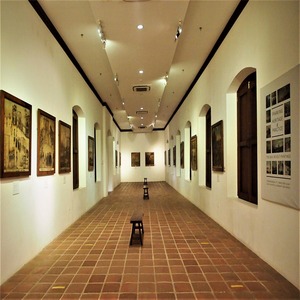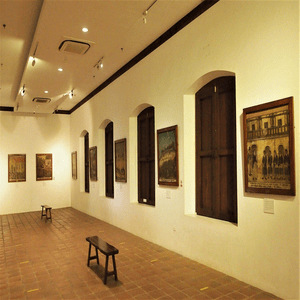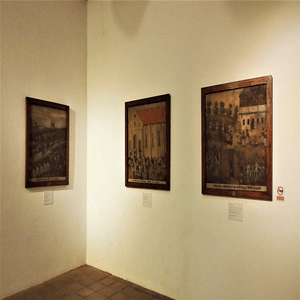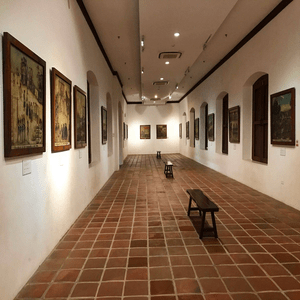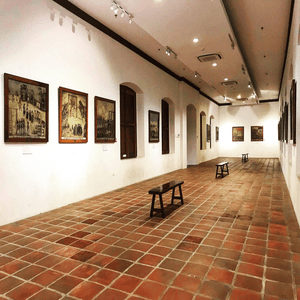| ‹ | The Basi Revolt |
› |
|---|
The 14 oil paintings depicting scenes of the Iloko peasants’ Basi Revolt of 1807 are housed in this gallery at the South Wing of the Old Carcel Museum.
Done in 1821 and attributed to Vigan mestizo Esteban Pichay Villanueva, these are the only pieces of artworks in the country that portray details of a historical event in a series. In 2009, the National Museum of the Philippines collectively declared these paintings as National Cultural Treasure especially for their significance in reflecting an important era in the nation’s art history.
The Basi Revolt is a permanent exhibit in the National Museum Ilocos that showcases the historical event known as the Basi Revolt, which occurred in the Ilocos region in the early 1800s. The exhibit highlights the significant role of the Ilocano people in Philippine history and their struggle against Spanish colonialism.
The Basi Revolt exhibit features artifacts, documents, and historical accounts of the uprising, including the weapons and tools used by the rebels, as well as the letters and proclamations issued by the Spanish authorities in response. It also includes information on the social, economic, and political conditions that led to the revolt, as well as the key figures involved in the uprising.
The Basi Revolt exhibit is known for its comprehensive presentation of this important chapter in Philippine history, and its emphasis on the bravery and determination of the Ilocano people in the face of oppression and colonialism. It aims to promote awareness and understanding of the struggles and achievements of the Ilocano people, and to inspire a sense of pride and appreciation for their contributions to Philippine history and culture.
Visitors to the exhibit can learn about the historical significance of the Basi Revolt and its impact on Philippine history, and appreciate the resilience and courage of the Ilocano people in the face of adversity. The exhibit is a tribute to the strength and spirit of the Filipino people, and a testament to the enduring legacy of their struggles and achievements.
